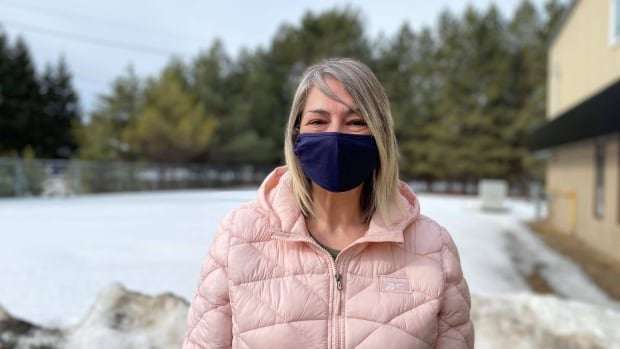The growing cost to live a quality, healthy life in Thunder Bay, Ont. has outpaced the provincial minimum wage, according to the Lakehead Social Planning Council.
It's why they're looking for businesses in the city to join their living wage campaign, where employers agree to pay their staff a minimum of $16.20 per hour. In other words, pay the minimum amount that the social planning council says is required for people to meet the social determinants of health.
"People should earn enough to be able to do all the things they need to do to stay healthy, like have a safe, secure place to live, buy nutritious food and be able to afford transportation," said Bonnie Krysowaty, the social researcher and coordinator of the Poverty Reduction Strategy with the planning council.
The calculation for a living wage is based on a number of costs specific to one area and includes things like average cost of rent, food, insurance, childcare as well as local activities like a week-long camping trip. Krysowaty says the calculation is made using resources from the Living Wage Network, and is based on a four-person family with two adults and two children.
"We know there's a lot of people in the city working for minimum wage right now," said Krysowaty. "A lot of the people that we're depending on, people that work part-time at grocery stores and box stores and things like that that we know are paid minimum wage, aren't earning a living wage."
Paying a living wage benefits the local economy
Minimum wage in Ontario is currently $14.25 per hour. The provincial rules state that on October 1 of every year, the minimum wage rate may increase. If it does increase, the new minimum wage will be published on or before April 1.
Krysowaty says paying people a living wage actually has benefits for the local economy.
"People that earn about $50,000 or less per year usually spend about 100 per cent of their income in the local economy," said Krysowaty. "So we really depend on the middle income and the lower end of the middle income folks to generate a good economy for Thunder Bay."
Bonnie Krysowaty (right) of the Lakehead Social Planning Council presents Itec 2000's president Ray Jarvinen (left) with the window decal after the Thunder Bay-based heavy equipment dealer became the fifth business to join the living wage campaign. (Logan Turner / CBC)
She added people that earn more than $90,000 only spend about 60 to 70 per cent of their income in the local economy, although that has shifted with the pandemic.
The social planning council first calculated a living wage for Thunder Bay in 2016, and re-run the calculations every two years. They plan to do update the numbers this fall.
Lakehead Social Planning Council looking for more businesses to show support
Their campaign to have businesses sign up and show their support for paying a living wage has five companies signed up, and Krysowaty says she hopes more businesses reach out to show their support as well.
For Ray Jarvinen, signing up was a no-brainer. The president of Itec 2000 Equipment, a Thunder Bay-based heavy equipment dealer focusing on the forestry, construction and mining industries, said his company was already paying staff more than the local living wage.
"Our employees are here for hopefully the long-term and we would want them to achieve salaries and wages in that $50,000 to $90,000 range. Ultimately, that's our goal [for our employees] is to have a good lifestyle in the community. And we're a firm believer that Thunder Bay is a great place to live," said Jarvinen.
With the Lakehead Social Planning Council looking to expand the number of businesses that are part of their campaign, Krysowaty expects to present before Thunder Bay City Council on March 15.

maplebaconmoose on March 18th, 2021 at 15:31 UTC »
Rent, and housing in general, is the big one.
I finally make a good salary, but I'll never own a house or even a condo without being cash poor until I retire.
I'm lucky to have been where I am for 10 years and to have rent control. But the place is small and kind of falling apart. To move to an even slightly better place would cost me about 50% more. :-(
I will probably die in this crappy little apartment.
Zanzibon on March 18th, 2021 at 05:05 UTC »
Minimum wage can fill the cracks. It can't fix widespread massive inequality. The trend of constantly depressed wages has to be reversed for this problem to be solved.
DankChemystree on March 18th, 2021 at 01:39 UTC »
Lowering rent and cost of living would also do we pay insane rents in many places, food prices are rising, phone bills and internet are crazy high, car insurance (in some places) are insane all while the gouvernment says this is fine inflation is low